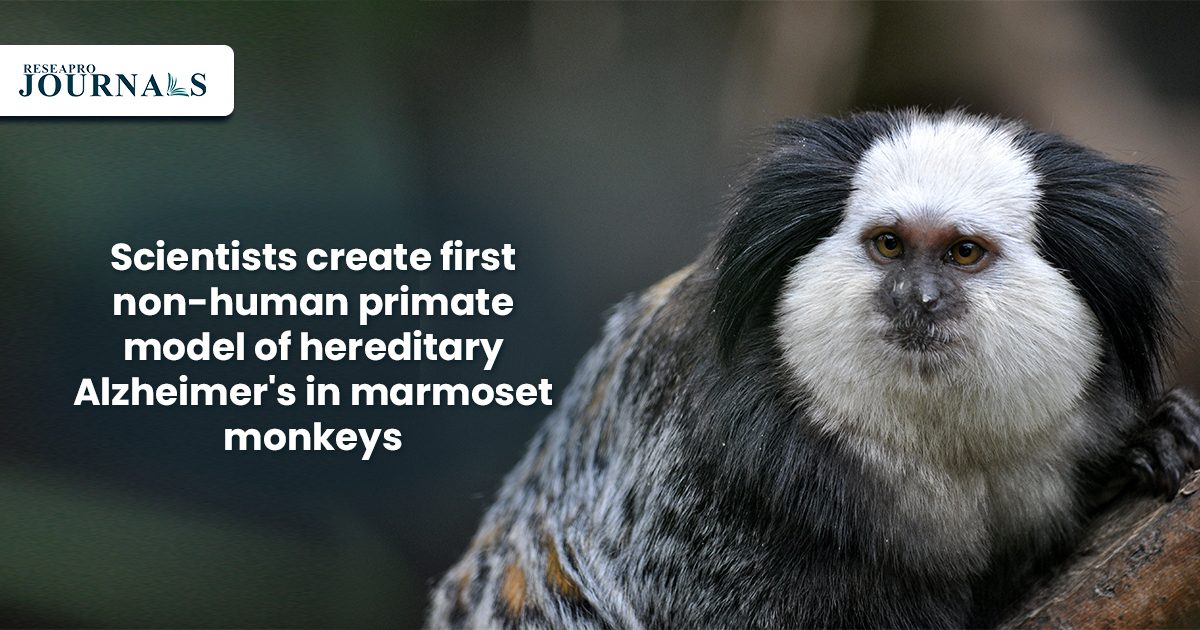Researchers at the University of Pittsburgh School of Medicine have created the first non-human primate model of hereditary Alzheimer’s in marmoset monkeys. The model is designed to accelerate the pace of drug discovery and rebuild the foundation for future translational studies. Marmoset families are better matched to mimic the genetically diverse human population than a colony of inbred rodents. And because marmosets’ life spans are shorter than those of other non-human primates, researchers can comprehensively study their aging within a relatively short period of time. The team is employing a battery of non-invasive tests, including behavioral studies, longitudinal analysis of blood biomarkers, and regular PET scans to assess brain function and pathological changes in the brain tissue. The researchers hope that this model will help them to better understand the underlying biological processes behind Alzheimer’s disease and develop new treatments for the condition.




